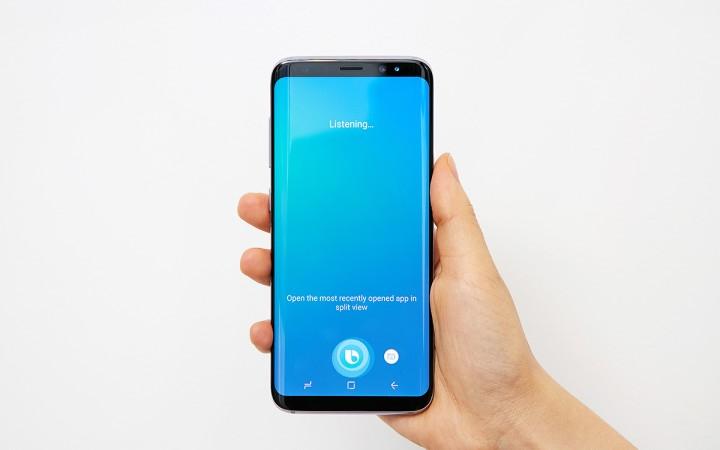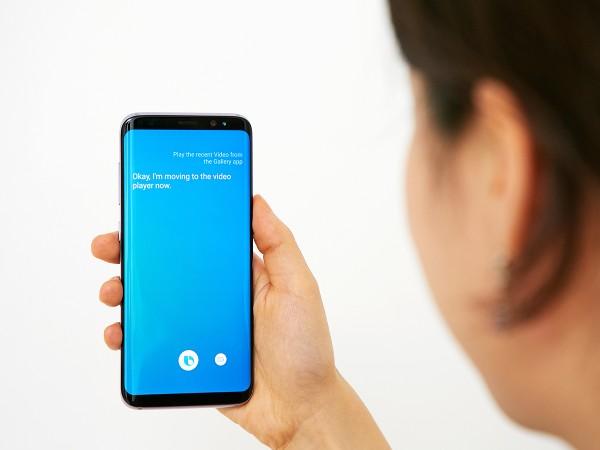
When the new Samsung Galaxy S8 goes on sale on April 21, it won't have one of the most important features the company boasted about while announcing the handset.
At a time when the latest flagship phone is only days away from release, the South Korean conglomerate said that Bixby, on the new Galaxy S8, won't support voice commands at launch.
Samsung said that Bixby, its new artificial intelligence-based virtual assistant, would allow early buyers of the Galaxy S8 to use on-screen features like the 'Vision' camera software, the 'Home' panel of widgets and 'Reminder', which can be set by time or location.
However, the voice activation capability, the headline feature of Samsung's rival to Apple's Siri, Amazon's Alexa, Microsoft's Cortana and Google's Assistant, won't be available in the US until "later this spring".
The company provided no explanation as to why Bixby Voice was delayed. While there is also no confirmation as to when users will be able to use the feature, it is likely that owners of the Galaxy S8 will have to wait until later this spring for a software update to get their hands on a full-fledged Bixby.
Some may argue that the delayed launch of a fully-developed Bixby is unlikely to hurt Galaxy S8 sales much because the handset has many other new features to entice buyers. That's true. But Samsung depends a lot on Bixby's success to catch up with rivals in AI, an area where the company has failed to make much headway so far.
During the announcement of the Galaxy S8 in March, Samsung positioned Bixby as one of the key signature additions — alongside the edge-to-edge Infinity Display — to the Galaxy line of smartphones. With a dedicated launch button, Bixby was touted as an aide to help users better perform various tasks with their smartphones.

Therefore, shipping the Galaxy S8 with a crippled Bixby makes the entire thing more confounding.
Many people even believe that unveiling a half-baked Bixby is Samsung's desperate attempt to enter the voice assistant fray, especially after it bought Viv, a start-up founded by Siri's original creators, to boost its efforts in AI.
"There's definitely a high bar to clear here, and Samsung's track record with software and services isn't all that promising," Jan Dawson, analyst at Jackdaw Research, told Financial Times. "It's starting to look like it might have been a mistake to push Bixby so fast rather than waiting to incorporate the Viv technology and produce something more fully baked."
Some early reviewers also expressed their disappointment after using Bixby in demonstrations.
CNET said after testing the new virtual assistant that it was "very firmly in beta mode" and needed to grow up.
Samsung itself had previously detailed that Bixby's capabilities would be limited to a few preinstalled apps initially, while the number of supported apps would eventually increase.
So the company did indicate that Bixby may have a slow start, but the lack of one of the most important traits at the very beginning will make it more difficult for the new virtual assistant to leave a mark.
Meanwhile, Samsung will also hope the initial hiccup for one of the Galaxy S8's major features won't hurt the company's much-needed recovery from the Galaxy Note7 fiasco.

















